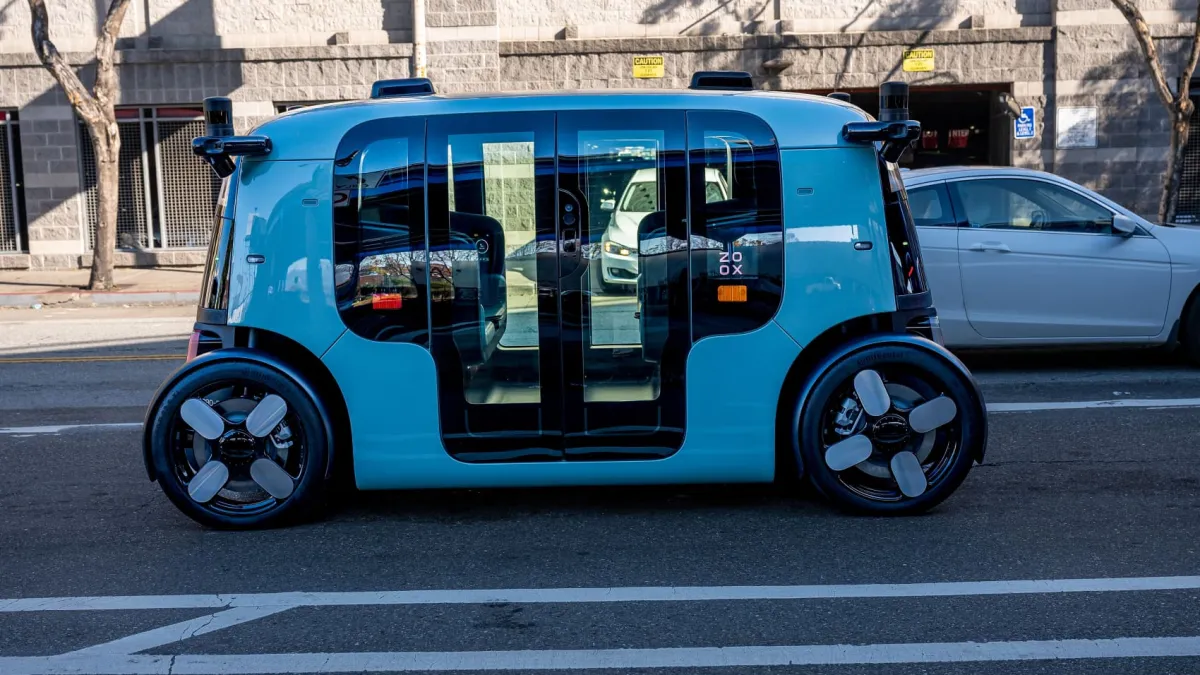The second time in a month, Amazon’s Zoox robotaxi unit voluntarily recalled its software. This was done after a crash in San Francisco.
On May 8, an electric scooter rider hit an empty Zoox robotaxi as it was turning slowly. The rider had stopped to yield at an intersection. Zoox said that the person on the scooter denied going to the hospital even though they had minor injuries from the accident.
It was stopped when the company said in a blog post that they got in touch. “The person riding the e-scooter fell right next to the car.” After making the turn, the robotaxi stopped moving, but it did not come into touch with the e-scooterist again.
Zoox said on Thursday that it sent a voluntary software recall report to the National Highway Traffic Safety Administration.
Someone from Zoox said that the warning would be posted on the NHTSA website early next week. A spokesperson said that the recall covered 270 cars.
In a statement, the NHTSA said it had received the recall notice and that it “advises road users to be cautious in the vicinity of vehicles because drivers may incorrectly predict the travel path of a cyclist or scooter rider or come to an unexpected stop.”
If an autonomous car keeps moving after hitting a vulnerable road user nearby, it could hurt that person or hurt them even more. General Motors-backed Cruise got out of the robotaxi business after a crash in which one of its vehicles hurt a person who had been hit by a human-driven car and then rolled over by the Cruise AV.
Zoox’s accident in May happened about two weeks after the company announced a separate voluntary software recall in response to a crash in Las Vegas. When that happened, an unoccupied Zoox robotaxi crashed into a passenger car, causing slight damage to both.
The company recalled software for 270 of its robotaxis to fix a problem with its automated driving system that could make it wrongly guess how another car will move, which would raise the “risk of a crash.”
When it bought Zoox in 2020 for more than $1 billion, Amazon said that the deal would help the self-driving tech company realize its “vision for autonomous ride-hailing.”
While Zoox is still testing and developing its self-driving cars on U.S. public roads, Alphabet’s Waymo is already running commercial, driverless ride-hailing services in Phoenix, San Francisco, Los Angeles, and Austin, Texas, and is now stepping up operations in Atlanta.
Tesla has said that its long-awaited robotaxis will be released in Austin next month. If everything goes as planned, the company plans to expand to San Francisco, Los Angeles, and San Antonio, Texas, after that.

